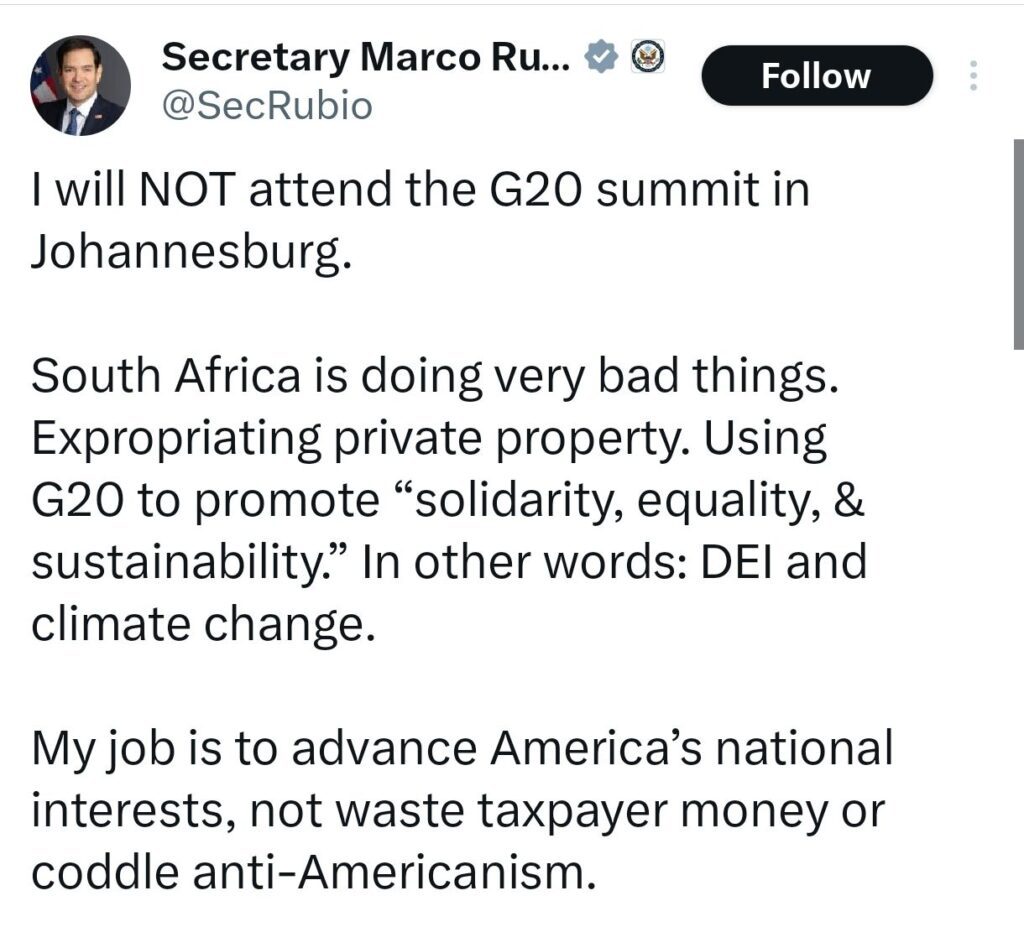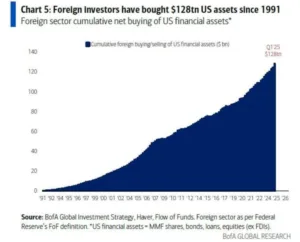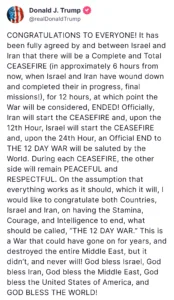U.S. Secretary of State Marco Rubio has announced he will not attend the G20 foreign ministers’ meeting in Johannesburg, South Africa, on February 20-21, 2025. His decision aligns with President Donald Trump’s stance and is a response to South Africa’s land reform policies and what Rubio describes as an “anti-American” agenda.
Rubio’s Criticism of South Africa’s Policies
Rubio’s primary objection centers on South Africa’s land reform efforts, which aim to address inequalities from the apartheid era. While South African President Cyril Ramaphosa insists the policies focus on equitable land access and not land confiscation, Rubio and Trump have labeled them as expropriation. Without citing specific evidence, Trump has previously claimed that South Africa is seizing land from private owners.
Rubio took to the platform X to voice his concerns, writing:
“South Africa is doing very bad things. Expropriating private property. Using G20 to promote ‘solidarity, equality, & sustainability.’ In other words: DEI and climate change. My job is to advance America’s national interests, not waste taxpayer money or coddle anti-Americanism.”

South Africa Responds
President Ramaphosa has strongly pushed back against these accusations, maintaining that the government’s policies are aimed at historical redress and economic inclusion. He has also engaged in talks with international figures, including Elon Musk, to counter what he calls “disinformation” spread by U.S. officials.
Impact on Global Diplomacy
Rubio’s absence from the summit is expected to have significant diplomatic consequences. The G20 serves as a key platform for addressing global challenges, and the U.S. plays a crucial role in these discussions.
One area where his absence might be particularly felt is in negotiations related to the Ukraine war. Rubio was expected to engage in diplomatic talks with Russian Foreign Minister Sergei Lavrov as part of Trump’s efforts to push for a resolution. With Rubio skipping the summit, the U.S. may have reduced influence over these discussions.
Reactions and Broader Implications
The decision has sparked debate on social media, with supporters praising Rubio for standing firm against policies they see as undermining American interests. Critics, however, argue that skipping such an important international meeting weakens U.S. leadership and engagement in global issues, including sustainability and economic equity.
South Africa, which holds the G20 presidency until November 2025, has positioned itself to influence global discussions on these topics. Rubio’s boycott signals a potential divide in international cooperation, especially on issues related to climate change, economic inclusion, and governance policies.
Looking Ahead
With the G20 summit just weeks away, Rubio’s decision ensures that U.S.-South Africa relations will be a major topic of discussion. The absence of a senior U.S. official may impact key negotiations on international conflicts, economic policy, and global governance. It remains to be seen whether this move will lead to long-term shifts in diplomatic relations or if alternative U.S. representatives will step in to engage with world leaders at the summit.
Bringing you the latest updates on finance, economies, stocks, bonds, and more. Stay informed with timely insights.






Be First to Comment